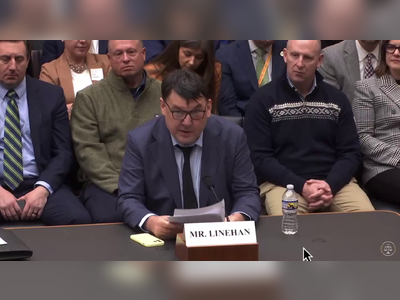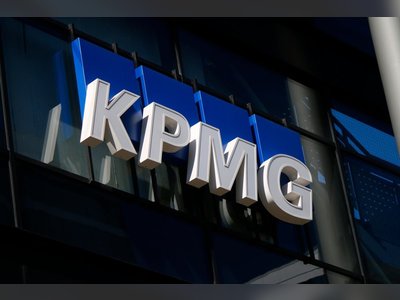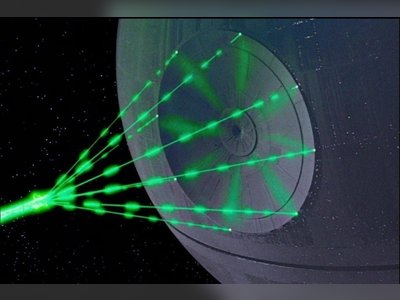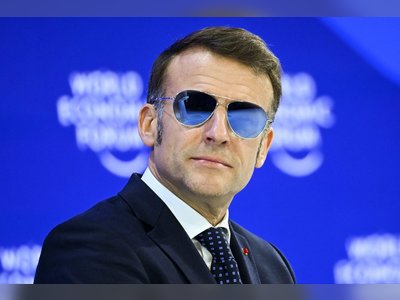Germany Rejects Defense Eurobonds, Advocates for EU Budget Financing
German Finance Minister Jörg Kukies states firm opposition to Eurobonds while supporting joint European procurement initiatives.
In Brussels, Germany has reiterated its opposition to the concept of defense Eurobonds as the European Union debates measures to boost its defense industry.
German Finance Minister Jörg Kukies explicitly expressed skepticism regarding the issuance of Eurobonds during a Eurogroup meeting, stating, "I am skeptical of Eurobonds as such." Instead, he emphasized that Germany is open to financing common projects of European interest through the EU budget, indicating willingness to support joint procurement and European loans, provided they are repaid.
Kukies articulated concerns regarding the distribution of debt among 27 EU member states, asserting that "the idea of creating debt and distributing it among 27 countries does not convince us." This statement signals Germany's rejection of any proposals akin to the post-pandemic recovery initiative, NextGenerationEU, which involved mutualizing EU debt to stimulate economic recovery following the pandemic crisis.
Additionally, Kukies urged caution on matters of government spending to support heavy industry, indicating the necessity of clear definitions related to what constitutes defense spending.
He highlighted the importance of evaluating the European Commission's proposal to suspend internal stability pact rules for four years, a measure aimed at ensuring debt sustainability for member states.
Economy Commissioner Valdis Dombrovskis confirmed plans for increased spending, allowing governments to exceed their deficit limits by up to 1.5 percent of GDP annually from 2025 to 2028. This flexibility is intended to avoid penalties under the EU's macroeconomic imbalance procedures.
While the discussions among EU economic ministers remain open to a range of topics, opposition to Eurobonds for defense financing remains strong.
Dutch Finance Minister Eelco Heinen echoed Germany's stance by rejecting the notion of joint debt securities for defense purposes.
Conversely, France has shown interest in the idea of joint procurement, with French Finance Minister Eric Lombard underscoring the importance of allocating funds to purchase European-made products to meet European defense needs, appearing as a challenge to the US defense industry led by former President Donald Trump.
Italy has also entered the discourse with proposals aimed at avoiding increased public debt to support defense.
Italian Minister of Economy Giancarlo Giorgetti is advocating for European coordination on common projects and seeking to attract private capital for defense initiatives.
German Finance Minister Jörg Kukies explicitly expressed skepticism regarding the issuance of Eurobonds during a Eurogroup meeting, stating, "I am skeptical of Eurobonds as such." Instead, he emphasized that Germany is open to financing common projects of European interest through the EU budget, indicating willingness to support joint procurement and European loans, provided they are repaid.
Kukies articulated concerns regarding the distribution of debt among 27 EU member states, asserting that "the idea of creating debt and distributing it among 27 countries does not convince us." This statement signals Germany's rejection of any proposals akin to the post-pandemic recovery initiative, NextGenerationEU, which involved mutualizing EU debt to stimulate economic recovery following the pandemic crisis.
Additionally, Kukies urged caution on matters of government spending to support heavy industry, indicating the necessity of clear definitions related to what constitutes defense spending.
He highlighted the importance of evaluating the European Commission's proposal to suspend internal stability pact rules for four years, a measure aimed at ensuring debt sustainability for member states.
Economy Commissioner Valdis Dombrovskis confirmed plans for increased spending, allowing governments to exceed their deficit limits by up to 1.5 percent of GDP annually from 2025 to 2028. This flexibility is intended to avoid penalties under the EU's macroeconomic imbalance procedures.
While the discussions among EU economic ministers remain open to a range of topics, opposition to Eurobonds for defense financing remains strong.
Dutch Finance Minister Eelco Heinen echoed Germany's stance by rejecting the notion of joint debt securities for defense purposes.
Conversely, France has shown interest in the idea of joint procurement, with French Finance Minister Eric Lombard underscoring the importance of allocating funds to purchase European-made products to meet European defense needs, appearing as a challenge to the US defense industry led by former President Donald Trump.
Italy has also entered the discourse with proposals aimed at avoiding increased public debt to support defense.
Italian Minister of Economy Giancarlo Giorgetti is advocating for European coordination on common projects and seeking to attract private capital for defense initiatives.
AI Disclaimer: An advanced artificial intelligence (AI) system generated the content of this page on its own. This innovative technology conducts extensive research from a variety of reliable sources, performs rigorous fact-checking and verification, cleans up and balances biased or manipulated content, and presents a minimal factual summary that is just enough yet essential for you to function as an informed and educated citizen. Please keep in mind, however, that this system is an evolving technology, and as a result, the article may contain accidental inaccuracies or errors. We urge you to help us improve our site by reporting any inaccuracies you find using the "Contact Us" link at the bottom of this page. Your helpful feedback helps us improve our system and deliver more precise content. When you find an article of interest here, please look for the full and extensive coverage of this topic in traditional news sources, as they are written by professional journalists that we try to support, not replace. We appreciate your understanding and assistance.











